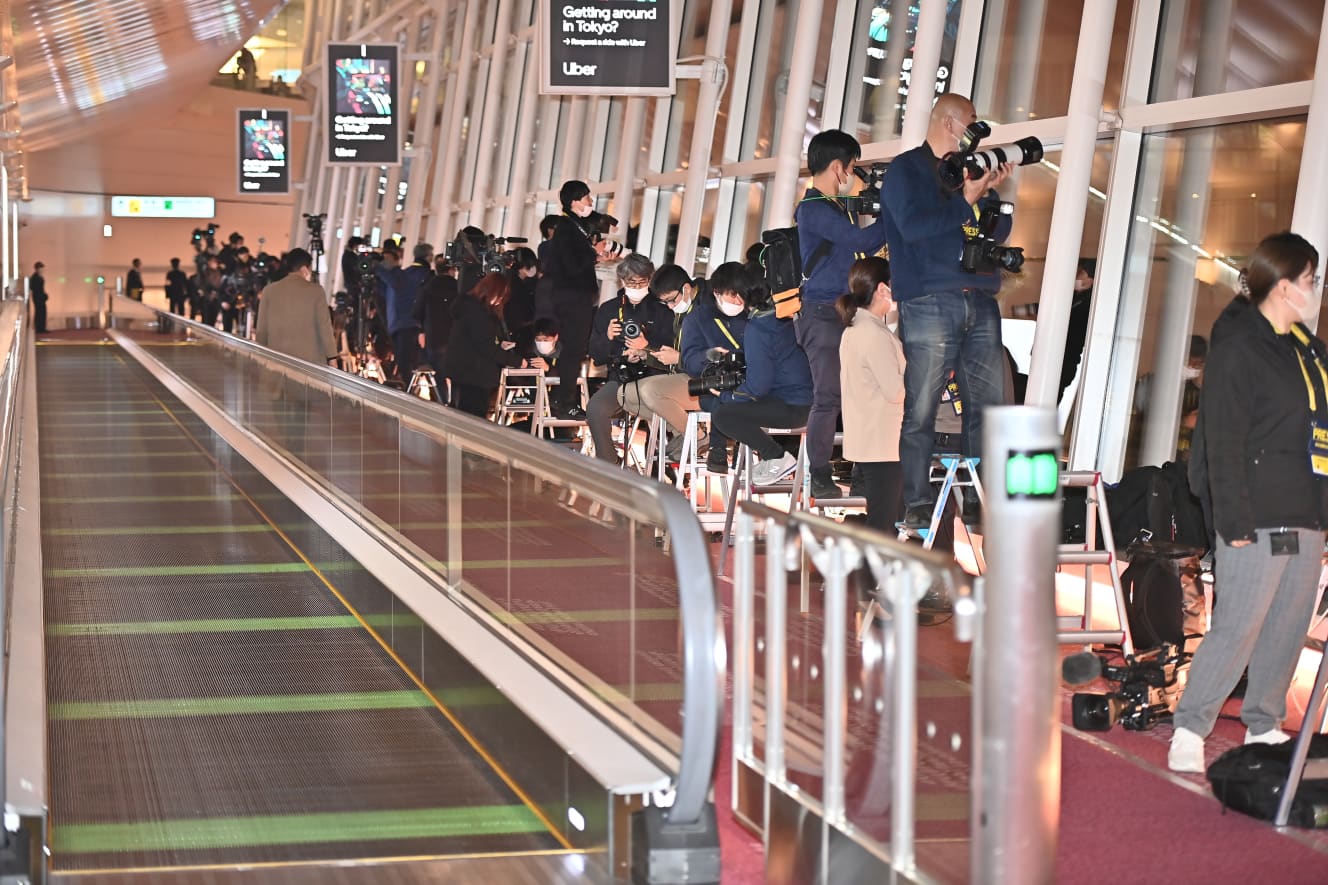A former subordinate saw all the atrocities committed by the “Luffy Group.
“Since the time of the special fraud, Watanabe’s group was known as a ‘crazy group of people. It was like a game to make them commit fraud. Since they were always in a safe place (the Philippines), they had no sense of reality, and there was always a sense that they could do anything they wanted.
A series of wide-area robberies began around October 2010, mainly in the Kanto region and other parts of Japan. The alleged ringleaders were Yuki Watanabe (38), Mato Imamura (38), Tomonobu Kojima (45), and Seiya Fujita (38). The four suspects, including the leader, Watanabe, are believed to have sent instructions for the robbery to the perpetrators in Japan, using various code names such as “Luffy” and “Hanmabaki” on the messaging application.

Before committing the robberies, the suspects were engaged in large-scale special fraud. The scam was conducted nationwide, with “callers” making phone calls from the Philippines to Japan and “receivers” visiting victims’ homes in Japan to withdraw money. Watanabe and his crew gathered a large number of “minions” and went to great lengths to commit atrocities. A former subordinate describes the organization as follows.
There were about 80 members in total in the Philippines. There were four boxes (bases) in the Philippines, each with about 20 members, and they called Japan to conduct special frauds. Watanabe was the head of the group. He was called “the boss. Initially, the group members were recruited from Hokkaido, the boss’s hometown, but when they ran out of people, they started using Twitter to recruit from all over Japan. After that, some people came to the Philippines through the bosses’ contacts, others applied through Twitter, and …… became a more and more diverse group. The more successful the special scam became, the more applications we received, and some yakuza and other powerful individuals joined the group. Toward the end, it was a really bad group of people.”
The Watanabe Group grew into a huge criminal group. The Watanabe Group became a huge criminal group, and their special fraud techniques were cunning.

The group’s basic technique was to make phone calls to people pretending to be employees of the Financial Services Agency. They would prompt the recipient to put a cash card and a note with the PIN in an envelope, and then the recipient would visit the victim’s home and replace the envelope with another one. At the time, this method was the mainstay of the scam group, and the boss said boldly, “I was the one who came up with this trick. I don’t know if this is true or not, but I think it is possible for a boss with a good head on his shoulders.
Another person involved in the case also commented.
However, when the Watanabe Group was engaged in special fraud, they did not use a directory agency at all, but made their own lists. When making phone calls, they used a website that anyone could access, such as one reprinting phone book information. As long as we had the right address, name, and phone number, we were good to go. From there, we would make the actual phone calls and verbally elicit the assets. This is the most important part of the process. Watanabe’s group would create an original list that they brushed up on in this way, and use it to commit the crime.
The Watanabe group was also extremely skillful in their methods of gaining control of the “part-timers” involved.
They would first ask the applicants to submit all of their personal information, including driver’s licenses and other documents. They would even find out where their parents worked and call the company to confirm their employment. After I knew all the personal information about the recipient, I would send him or her on the job. Of course, we never gave out any information about the directing officer. The boss rarely came to the office and did not give direct orders. Each box had its own head, but it was Fujita who was in charge of recruiting (the role of scouting and managing the job candidates), and he always explained the job in front of dozens of members. Fujita learned and practiced his work expertise from the boss. When the group’s executives and kakeko were in Japan, they basically used prepaid Thai SIM cards to communicate with each other so that they would not be traced. These SIMs could be purchased locally without identification and could be used in Japan for about a week; the SIMs were sold by the group to its members for 10,000 yen each, but the receivers did not give them to him because he was a discarded piece.”

Once a member of the group had committed a crime for the money, there was no way to get out of the group.
There are those who say, ‘I want to quit after all,’ after having been a participant in a crime. But we know all the information about them, including their criminal activities, so we threaten them, saying, ‘We’re going to report you to the police for your previous offenses. There were recruiters who reported the case to the police because they did not want to pay the recipient. After informing the recipient of the crime scene, they would report the same crime scene to the police, who would then arrest them. In some cases, if they wanted a caller from the Philippines to call Japan, they would intentionally drive the Japanese receiver to become a wanted person and bring him or her to the Philippines. Whether the recipient is caught or not, no matter what he does, we can’t trace him or her. The takeriko are pawns.
Sometimes, the yakuza would introduce the recipients to the group. However, the Watanabe Group seemed to be very aggressive even with the yakuza.
The boss said, “We would tear off (reduce) the amount of money we were paying the yakuza. The boss said, ‘We are in the Philippines, so they won’t do anything to us. He said, ‘We are in the Philippines, so they won’t do anything to us. The group had numerous branches, and there were many yakuza who were working at the end,” said a former subordinate.

Although the Watanabe Group’s special scam caused many victims, its sales were enormous.
The average monthly share of the boss was about 150-200 million yen. Of course, if you talk about overall sales, the figure is much higher. Remuneration for the kakeko and takers was paid by bank transfer. The boss went into Philippine casinos every day and was passionate about baccarat. Boss was playing at the minimum rate (minimum betting amount) of 2 million yen. He was treated as a VIP at City of Dreams and a VVIP above VIP at Okada Manila. City of Dreams had a lot of wealthy Chinese visitors, so even the boss could only be VVIP a few times,” he said.
At a press conference in February of this year, Yasuhiro Hiroki, Commissioner of the National Police Agency, announced that the damage caused by the special fraud of Watanabe and his group amounted to 6 billion yen. There was also a hostile organization targeting the Watanabe group’s money, but the group was relentless in its response to such opponents.
There were people who would apply to the boss’s group posing as “receivers,” and then leave after taking the money from the victims. When the bosses’ intelligence network detected this, they would pretend to have been duped, give the recipients the address of the recipient, and report it to the police. That’s how I got the hostile guys to crack. I always kept the receiver connected to the phone, so when the police came, I would say, ‘You guys did the same thing before, didn’t you? We know it over here. We’d hang up the phone laughing and saying, ‘Well, good luck in jail. It was really like a game.

The former subordinate spoke of the other three accomplices as follows: “Fujita was originally from Hokkaido.
I heard that Fujita originally worked at the boss’s store when he was in Hokkaido. He was the leader of the fraud group and called himself ‘Ohno. Kojima had an ‘8’ tattoo on his ankle. Kojima had a side job processing marijuana without telling Watanabe, and he gathered his friends and smoked it himself. Kojima and Fujita lived in a luxury residence with a pool in Manila. The most puzzling is Imamura. Reports say that he is a co-owner of a fraudulent group, but I have never seen Imamura himself. A warrant has been issued for Imamura’s arrest on suspicion of impersonating a police officer in Japan in April ’19, stealing cash cards, and withdrawing 700,000 yen in cash, but there is no way the head of the group would be a taker or a taker. There is no way that the head of the group could be a receiver or a teller. Obviously, this is a low-level job. Probably, the boss had Imamura issue an arrest warrant, and then had him flee to the Philippines to take his place. He would do something like that with impunity.

As Watanabe and the others awaited justice, a former subordinate revealed his feelings.
This group has caused tremendous misery to a tremendous number of people. It is not an exaggeration to say that they have eaten up everyone, friend and foe alike. I have never seen an organization, even among fraud groups, where the people at the end of the line have been so crushed. The people who were arrested this time as the perpetrators may now themselves create and lead a criminal organization like Watanabe’s. This unfortunate chain of events will continue. I believe this chain of misfortune will continue for a long time. This is not the end.
The Watanabe Group has created many victims. Is there really any way to break the negative chain of events?

Photo by: Shinji Hasuo